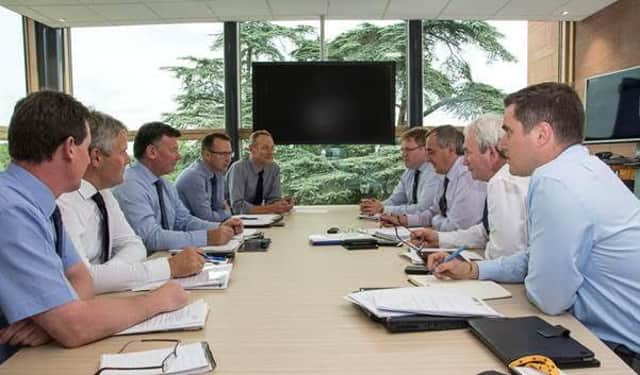Scaremongering on tariffs


They imply they are the first to discover something others that actually understand the industry are well aware of, and are then given a platform as experts.
This week we also saw the National Trust calling on the government to seize Brexit as an opportunity to switch farm support from food production to the environment – an approach that would undermine the food processing industry and the thousands of jobs it brings to the UK economy. This is all happening because Brexit has created a policy vacuum that will last for years. It has created an opportunity for some to wring their hands about the demise of farming – despite that being the greatest imaginable economic blow to the economies on both sides of the border. This is something agriculture will have to get used to, because we are going to live with uncertainty for the foreseeable future.
Advertisement
Advertisement
It was good news this week that the farm unions from across the UK got together to agree common goals for the negotiations ahead on trade and support to replace the CAP. Their approach seems to be built around confidence in the short term, in the shape of CAP support continuing as planned until 2020, and certainty for the future over support and trade. These are essential if farmers are to go on investing in their businesses, and indeed if banks are to continue underpinning that investment. This is all the more important now that there is some evidence of dairy markets recovering, thanks in part to global supply and demand coming back into balance. More than anything this will allow farmers to again think about future plans.
There was a suggestion this week that farming was doomed because the EU would slap on massive tariffs on food when the UK finally exits. This was akin to Private Frazer in Dad’s Army constantly telling people, ‘we’re doomed’, which of course they never were. The claim was that when it came to accessing the Single Market the UK would find itself in the position of countries like Norway and Switzerland, or indeed those outside the European Economic Area, that face tariffs to supply food to the EU. The argument was that this was part of a Fortress Europe approach that would be used against the UK.
There was however a big flaw in this argument. It attempted to equate the UK, as a market and as a trader, with the other countries of the EEA that have little interest in supplying food to the EU and are a limited market. By contrast the UK imports 40 per cent of the food that goes onto supermarket shelves. That is about Danish, Dutch and Polish bacon, French dairy products and wine and of course Irish meat and dairy products. For these countries the UK market of 60 million people is a prime and profitable outlet. It is not a market they are going to abandon in a fit of pique to keep out British food from Europe. Tariffs are akin to the Cold War stalemate with nuclear weapons. They are about mutually assured destruction, and those with cool heads that will negotiate terms for the UK retaining access to the Single Market know that. The UK is not a small player like Switzerland or Norway. It always has been a trading partner with Europe. This was the case long before the EEC and EU, and will remain so when Britain leaves. The deal will reflect that, and to say otherwise is spreading unnecessary concern for the thousands of people in Ireland that depend on a thriving farming and food industry.
There are issues around this, but they are less about tariffs than standards. One of the big reasons farmers voted for Brexit was to escape the red tape of the CAP, but it seems certain this will remain for the products they want to sell into Europe. It is hard to imagine a situation where French, or indeed German farmers, would allow the UK access to the Single Market with products that do not fully comply with European standards. After all, this was the target of criticism here when our goal was to keep out Asian chicken or Brazilian beef. This is where the focus of the debate needs to be, rather than on spurious arguments about either side pushing the tariff button to destroy their respective industries.